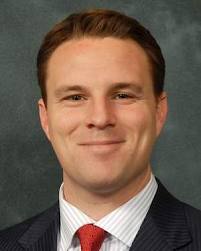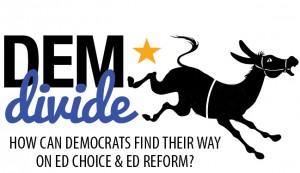
Earlier this year, during the last week of Florida’s legislative session, House Speaker Will Weatherford stood in the rotunda of Florida’s Capitol, posing for pictures with student activists who thanked him for helping push through a bill that had divided legislative Republicans. Earlier that day, the Senate had teed up a vote to grant in-state tuition to immigrants who had come to the country illegally as young children.
The activists, many of them Latinos, were now posing for pictures with the Republican Speaker, who, still in his thirties, may have a long political career ahead of him and who, at the same time, was helping to push separate legislation to expand school choice. It was possible in that moment to imagine the self-described acolyte of Florida’s “education governor” rebuilding a more diverse, right-of-center coalition like the one that helped Florida elect two Bushes but frayed in two straight presidential elections as the state backed Barack Obama. It was possible to see him laying the groundwork for an equal opportunity platform in which education would be a key plank.
This week, it also became possible to envision Democrats seizing that mantle – if they can resolve their own internal feuding enough to beat Republicans to it. The timing turned out to be ideal for “Dem Divide,” a series of redefinED posts that explored Democrats’ current divisions on ed reform and parental choice – and ways they might be overcome.
As Dana Goldstein noted last Sunday on MSNBC, “the politics have changed.”
The Obama administration is at odds with the two major teachers unions on charter schools, teacher tenure and other issues, with tensions that trace back to the 2008 campaign, when the unions supported Hillary Clinton. But, as Goldstein suggested, Clinton may be preparing to triangulate toward an embrace of charter schools, too, as her husband already has. Why? Because from New York to Indiana to Florida, the news is increasingly Dem vs. Dem.
It’s worth recapping what the voices in the redefinED series had to say about it.
DFER’s Joe Williams laid out a vision for a new Democratic coalition – one that unites suburban soccer moms and urban minorities in support of ed reform. But some Democrats who have boldly followed that path, including Rep. Marcus Brandon in North Carolina, have found tough going challenging the entrenched interests that, Gloria Romero notes, still hold considerable sway in their own party.
Others have perhaps moved too fast. As Chicago Mayor Rahm Emmanuel learned – the hard way, according to Myles Mendoza – it will be crucial for those challenging the status quo to listen to the low-income and minority communities they aim to help by increasing educational opportunity, and to empower them to help shape what comes next.
One thing working in their favor: their cause is, in the words of Ben Austin, “fundamentally progressive.” This legislative session in Florida was instructive. The same Democrats who were conflicted about the expansion of educational options in K-12 showed fewer qualms than their Republican colleagues in supporting the push for in-state tuition. Education reform and school choice – or at least some of the policies that fall under than umbrella – align with impulses already in Democrats’ DNA (whether some of them realize it or not).
It’s worth noting, also, that the fate of the middle class Democrats hope to strengthen is linked to vibrant teaching profession. The country’s 3.7 million teachers make up a huge block of the college-educated workforce; they deserve strong representation. But at a time when ed choice and customization are fast becoming mainstream, that representation, Doug Tuthill notes, will have to take on a new form.
Elected Democrats need not wait for all the tensions to ease before they start making change a reality. Author Richard Whitmire points to two large, Democrat-led, urban school districts that are charting such a path.
After talking up the efforts of a new group launched as a counterweight to DFER, it was American Federation of Teachers President Randi Weingarten who offered a succinct framing of the situation during her appearance on Melissa Harris-Perry’s show.
“I do think that at least in the Democratic Party, unlike the Republican Party right now, there is a war for that kind of conscience,” she said. “Hopefully what will win is kids and the people who actually help kids learn and thrive.”
Does anyone disagree with that basic goal? The good news for Democrats is their present internal strife is less about their party’s intrinsic values than about how to best apply those values to a real social problem. While Democrats’ solutions might look different than some of those devised by Republicans, there’s no obvious ideological reason for the next generation’s “right to rise” to become the sole province of conservatives like Weatherford.


